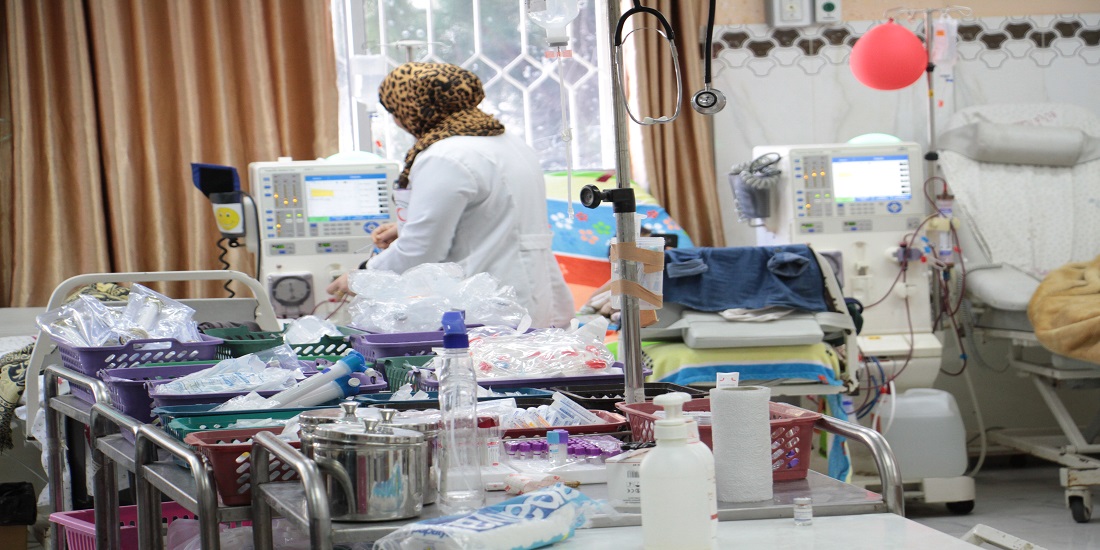JERUSALEM, Thursday, February 25, 2021 (WAFA) – Ali Radwan, a 12-year-old boy from Jabalia in the Gaza Strip, had been receiving lifesaving dialysis since the age of four or five due to a congenital kidney problem, today said the World Health Organization (WHO) in its monthly report on Health Access Barriers for patients in the occupied Palestinian territory covering the month of January.
Dialysis is a procedure where a machine undertakes the functions of the kidneys by removing waste, salt, and extra fluid from a person’s body, ensuring the right balance of electrolytes and chemicals, and controlling a person’s blood pressure. Dialysis works by taking fluids from the body – usually blood (hemodialysis) – and returning that fluid once the right balance has been achieved. Dialysis can also use fluids from the abdomen, a procedure known as peritoneal dialysis. This procedure is commonly used in children, where it can be difficult to establish and maintain blood access.
Ali had a catheter in his shoulder for nurses to provide him with regular blood dialysis, which he was receiving three times a week.
While at home, the catheter was accidentally pulled out and Ali was rushed to hospital with bleeding on 11 February 2021. The medical team at the hospital stopped his bleeding, but was unable to insert a new blood catheter, despite repeated attempts.
Ali needed dialysis urgently before his condition would deteriorate.
The team treating him at the pediatric dialysis unit in Rantisi Hospital was unable to insert a catheter for blood dialysis, and neither the equipment nor the expertise was available in Gaza to provide abdominal (peritoneal) dialysis. Ali needed an urgent referral.
On 15 February, the pediatric dialysis team referred Ali to the vascular surgery department at the Indonesian Hospital in North Gaza, to try to insert a catheter under x-ray guidance (fluoroscopy).
Again, it was unsuccessful. The team tried to make a lifesaving referral out of the Gaza Strip, but faced bureaucratic obstacles due to lack of capacity of hospitals in the West Bank.
Ali’s father said, "We submitted a lifesaving referral application for Ali to the SPU, but we were told that we would need to wait for financial coverage. Why should a lifesaving referral wait for financial coverage?! Doctors and nurses in the hemodialysis unit did their best and they were very nice to us and to Ali, but they couldn’t solve the problem."
A member of the pediatric dialysis team stated, "We do not have peritoneal dialysis in this unit as an alternative. We could have saved Ali’s life if we had peritoneal dialysis. It is very critical for our unit here. Children with renal failure badly need this service, particularly when we cannot access a major blood vessel to insert a dialysis catheter."
Faced with further delays, the team tried to insert a blood catheter for Ali in the morning of 16 February. During the procedure, however, Ali’s heart stopped beating. Despite the best efforts of the medical team, Ali died at around noon on 16 February.
Now, bringing the equipment and training for peritoneal dialysis to Gaza is a priority for the Ministry of Health. Pediatric nephrologist and former director of Rantisi Hospital, Mustafa al-Eila, stated, "Bringing peritoneal dialysis to the Gaza Strip is now a priority for the Ministry of Health, and we are looking for support to introduce this service."
M.K.









